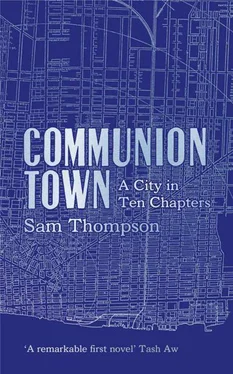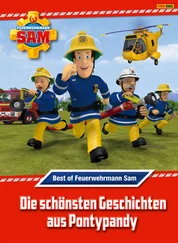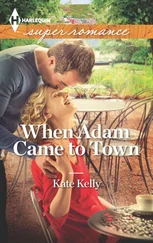The good slaughterer can’t live in two places. He has to choose between the city and the abattoir. He has no story of his own: that’s something he has to do without, because he has no place in the world outside. I had been resisting the choice, I saw now, but I couldn’t do it any longer. The moment comes to say goodbye. I stood for a long time with the paper in my hands and my eyes unfocused, and allowed myself a last farewell. I let myself remember an afternoon, not long ago, when I had walked down to the Strangers’ Market. I remembered the polyvinyl awnings with their broad blue and yellow stripes growing hot, the crowd thinning and thickening and the sun moving in and out behind a trailing curtain the colour of zinc. Everywhere hands felt in pockets, rubbed notes and coins, and strayed towards dark green melons, second-hand pots and saucepans, racks of leather coats, cheap clocks and watches, jewellery, sweets, medicines, bath salts, chestnuts in scalding paper bags. The avenues between the stalls were solid with browsers. I imagined the Flâneur here, moving through the crowd, patrolling the heart of his principality incognito.
I had loved the Market when I was younger. The women at the greengrocery stalls would look at this boy towering over them, his face implanted with sore lumps, and crow that I needed some meat on my bones. I used to browse the tables in the plaza, and had a compulsion for crumbling paperbacks. Later I gave it up, but for a time I would devour everything I could get, always in cheap, obsolete editions. I had a great need for all those stories. Once I bought an old novel for a few pence and for months came back to the stall to check for more by the same writer, feeling that if I searched through all she wrote I would discover something crucial. Thinking of those times, I was filled with the memory of mad excitement bottled secretly inside, the world succulent, rinsed and lit. Back then everything astonished me. I could be dumbstruck by the smell of rain and the slow gather of light on a green stone wall.
A viaduct cut across a corner of the marketplace, creating several deep arches in which stallholders had their pitches: vegetarian curry stands, coffee stalls, specialists in dyed silk scarves, purveyors of art posters. On the bricks above, a weatherbeaten sign spelled out the Market’s name in circus lettering. Inside one blue and white kiosk, three handsome black-haired young men in striped aprons, winking at their customers, ducked around under the strings of cured sausages and the dangling plastic bags in which pale balls of mozzarella floated. They trimmed the meat into deft, bloodless pieces, weighed them out and wrapped them in waxed paper before handing them over in elegant rectangular bags.
I remembered the day, soon after I had started working at the slaughterhouse, when I visited that stall. On the white refrigerated slabs, the cuts were displayed in their shades of lavender, plum, pastel and candy-pink. Someone spoke to me. I looked up. The young man flicked his fringe out of his eyes and asked again how he could help. When I didn’t answer, the crease in his brow deepened, but he pointed at sliced bacon of the palest coral.
‘How about this, sir? It’s rather special today.’
I nodded, and watched his gloves peel the floral tissues apart. I wanted to let him know who I was, so he would understand that we were both part of the single great scheme that linked my bleed rail and his blue striped canopy. He and I were brothers dedicated to the hunger of the city. But I couldn’t work out how to tell him and in the end I said nothing. It was only as he rung up my purchase on the till that I found I hadn’t brought my wallet.
You can go out among your fellow creatures but you can’t stay out there forever. You have to come back in. It’s not so easy to leave your account once you’ve begun it. It always wants you back. The pink slip is in your hands: rub the paper between finger and thumb. Think of Fischer. Think of the Flâneur.
One of his eyes is looking out between the first and second fingers of my gauntlet, and the eye is asking me a question. This won’t take long. There will be no suffering. I’ve said what I can, I’ve given my account, and what happens afterwards is not my concern. The good slaughterer knows his skills have their place. He does the work.

Dawn was walking home along the seafront when a voice called her name. As she looked around, a tall, fair-haired girl hefted a rucksack on her shoulder and started forward, shading her eyes against the hard sunlight, almost colliding with a cyclist as he zipped by. The tall girl, whose name was Andie, called out again. A man selling treats from an icebox slung across his chest was watching with interest.
Dawn returned the greeting with a small smile and a wave of the hand which, she felt at once, must look badly lacking in surprise or enthusiasm, or even as though she’d made an instant, calculated decision to be rude. She had been at school with Andie in another country and the last time they had spoken to each other they had been fourteen years old. For a while they had been well known to others and themselves as best friends. They had both stayed at the school until they were sixteen, when Andie had left. But after the last time, they hadn’t spoken.
Andie had just arrived in the city, she’d literally walked here from the station, she hadn’t even found a hostel yet or anything. What a coincidence that Dawn should be here and they’d met like this! She’d only been backpacking a fortnight so far, but she was having a great time. There were six weeks more on her ticket but she could see herself extending it further. She’d had no idea Dawn was in the city. How long? Two years so far. What doing? Teaching assistant at a language school. This was amazing. Andie wanted to know everything. She could hardly believe she’d found Dawn like this, it had to be more than a coincidence. She loved travelling but the only problem was not being able to read the signs or get people to understand you. But Dawn practically lived here! She could tell Andie everything. Andie had only been planning on a night and a day in the city, two days at most, but now she thought she might stay longer.
Dawn was already conscious of a desire to unfold the city. She wanted to claim the blinding ingot of the sea and the men hauling their nets up the wharf, and to present a city more true than the one mapped out in Andie’s brand-new guidebook. At the same time she felt how little she knew, even now.
They continued along the seafront, picking their way through the preparations for a public event of some kind. Long trestle tables had been set up on the broadest stretch of the promenade, and young men were shinning up the lamp posts to hang bunting. Dawn explained that her apartment was not far from the Boulevard Mino, just a few minutes’ walk away. Andie could easily come back there if she wanted, if she didn’t have anywhere else to get to. She could freshen up, even leave her bag for a few hours. If she liked?
In the apartment, Dawn watched Andie unshoulder her rucksack and let its tail thump into the floor, then knit her fingers, stretch her arms and rotate on the balls of her feet to take in the apartment. Despite the fairness of her skin, the sun had not burnt her. Instead, it had given a healthy rose-and-gold varnish to her face, throat and arms, paled her blue eyes, and turned her thick fair hair silver. It suited her, and only heightened the Nordic look that, it was already obvious, made her conspicuous here. Dawn herself represented a more common physical type in this part of the world.
Читать дальше
Конец ознакомительного отрывка
Купить книгу













